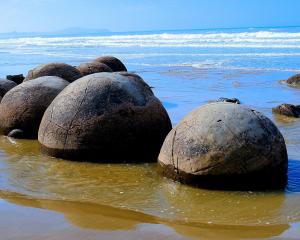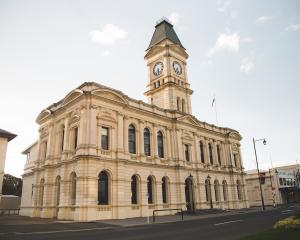
QMaddy: Dovile, please tell us a bit about yourself, and where you are from.
Dovile: Sure. I came from Lithuania, which is a small country in the north of Europe, to New Zealand six years ago. I met and married Elias here and we have been in Oamaru for about three and-half years. We have a baby daughter — Vija, who will soon be 1.
QM: Have you been back to Lithuania at all?
D: Yes. I was back a couple of times, actually. Last time was over two years ago. I had to fly in the middle of a pandemic, and that was very, very stressful, in order to get my visa sorted. All the borders were closed, and we had quarantine. I didn't know if I would be able to come back, but thankfully, my husband was a resident and we got a special visa for me.
QM: Why did you choose to live in New Zealand?
D: I actually didn't choose per se. I wanted to do my PhD, and was applying for a project, not for a country, and I found two: one in New Zealand, one in Canada. I applied for both, and I was offered the scholarship for both. I guess I chose New Zealand over Canada because, during my interview, it was -31°C in Toronto. So, I chose New Zealand.
QM: What was your PhD in?
D: My PhD was in genetic diversity of a multi-drug resistant parasite of sheep — hence New Zealand. It was partially New Zealand, partially in Ireland. Even though I came here to study sheep, I didn't expect to see so many everywhere. I’d never seen or touched a sheep in my life, and there was hundreds of them — thousands, everywhere. And I wanted to stop and pat every single one. Now I am mainly at home with Vija, which I have found quite hard. I am so thankful that Oamaru has a really cool multicultural playgroup for mothers like me, who meet at the Plunket Rooms.
QM: Have you had any experiences where you feel you are being judged as different?
D: No. I think everyone is very accommodating, and I do have a very distinctive accent. Sometimes I feel like, if I go somewhere with my husband who has a beautiful American accent, even though I'm the one asking the questions, people tend to address him more than me, or they speak very slowly to me.
QM: What is most similar to your home?
D: I guess how Kiwis treat nature; how you appreciate nature and spend so much time at the lakes, camping. We are the same. I really appreciate that.
QM: What is something about your home country you would like to share?
D: I think at the moment, though I don't want to get political, I would like people to know that we stand very strongly together with Ukraine and what's happening over there. It's a very sensitive topic for us because we are in such a geopolitical situation that, you know, Lithuania can always be next. We feel very fortunate to be here, and we want to stay. We want Vija to grow up here, in the Waitaki.
QM: Can you teach us some greetings in Lithuanian?
D: Labas (la-bus) is Lithuanian for hello. Ike (e-kay) is see you later.












